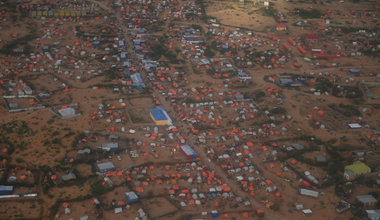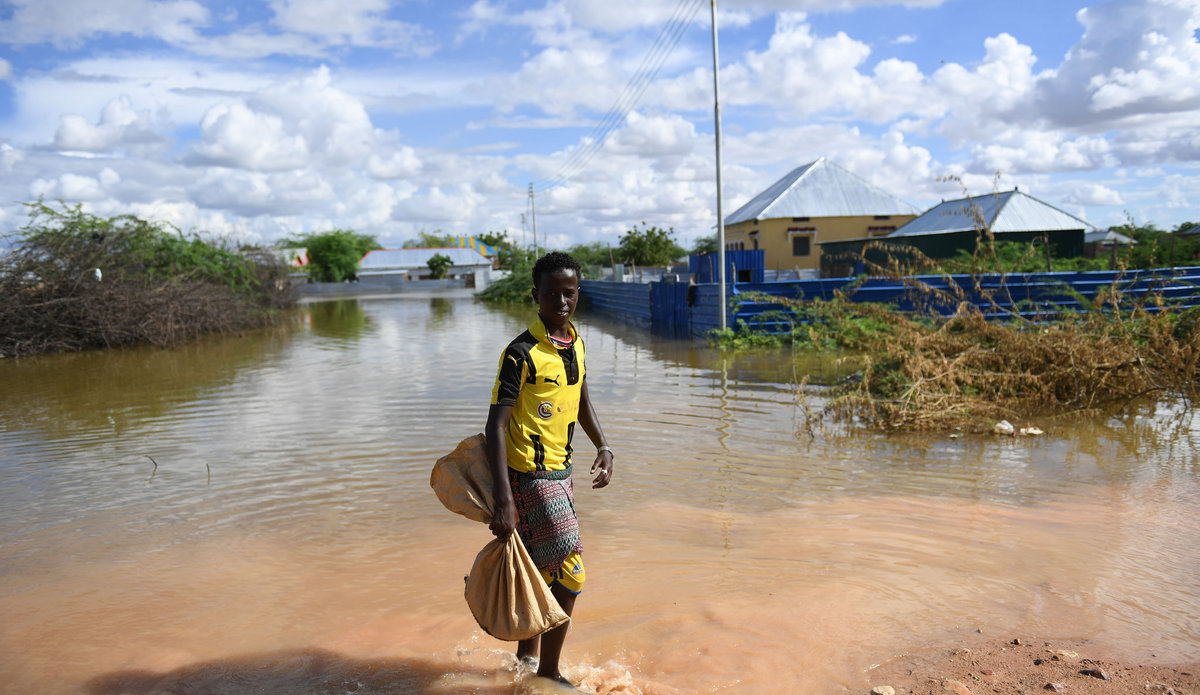On visit to Belet Weyne, President Farmaajo appeals for international aid to help flood victims
Belet Weyne - On a visit to assess the impact of flooding in Somalia's central state of HirShabelle, the country's President Mohamed Abdullahi Mohamed "Farmaajo" today appealed to the international community and Somali diaspora communities to support efforts to help those affected by the floods, which include more than 150,000 people locally and some 500,000 nationwide.
President "Farmaajo" made the call while leading a high-level delegation, which included representatives from the United Nations and the African Union Mission in Somalia (AMISOM), to the city of Belet Weyne in HirShabelle state.
There, he assured the state's President Mohamed Abdi Waare and local residents that the federal government was taking action to address the humanitarian crisis caused by the floods.
“We have formed a national disaster committee to respond to the needs of our fellow citizens who have been affected,” he said. “The government stands by your side morally and materially to deliver all the help that we can.”

The Shabelle River, which begins in the Ethiopian highlands and flows through Belet Weyne and the HirShabelle state capital of Jowhar, burst its banks following the onset of heavy rains which began last month. Other states affected by the heavy rains include Jubbaland and South West state. The heavy rains and flash floods come only months after a devastating drought left over six million people in need of humanitarian assistance last year.
An official from the UN Office for the Coordination of Humanitarian Affairs, Yngvil Foss, said rainfall in recent weeks has been heavier than anticipated.
“Initially, all humanitarian actors started responding with the means and assets they had available,” Ms. Foss, OCHA's deputy country director for Somalia, said. “In the past week we have been able to raise additional money to target assistance for food, water, sanitation and non-food items to be able to respond.”
The UN World Health Organization (WHO) delivered 4.5 metric tons of medicines and other medical supplies to Belet Weyne on 29 April. Ms. Foss called for more funding to provide food and water to the increasing numbers of internally displaced persons.
Another delegation member, acting AMISOM Police Commissioner Christine Alalo, praised AMISOM peacekeeping troops from Djibouti and Ethiopia for evacuating more than 10,000 residents of Belet Weyne from inundated parts of the city. She noted that the African Union peacekeepers have provided water and tarpaulins to flood victims.
 UN
UN





